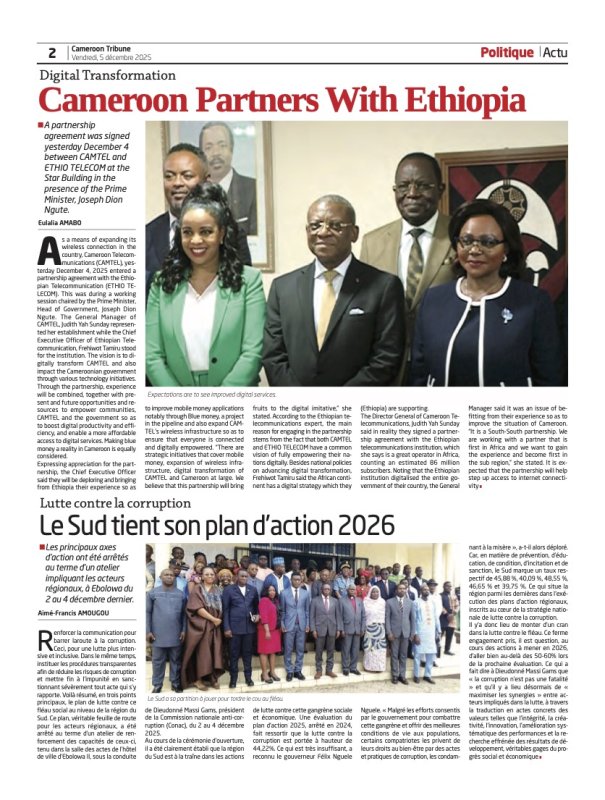Child Protection: Parental Responsibility Remains Primordial
- Par Emmanuel
- 19 Aug 2024 10:14
- 0 Likes
The upsurge in the number of cases of missing children, some being maltreated and many others involved in accidents reported in traditional and social media, is a wakeup call for the society in general and parents in particular. Children are classified under the vulnerable persons in society and need special care and protection.
Indeed, just as the dust is settling on the case of the baby stolen in the Ekoumdoum Baptist Hospital in Yaounde IV Subdivision on August 3 and discovered three days after on August 6, 2024 in a private clinic in the Nkoabang neighbourhood, there are reports of another child whisked away by an unknown man at a home in Nkoldongo still in Yaounde IV Subdivision. In the case of Nkoldongo, the person tricked the cousin of the stolen child to get out of the house. When the cousin came back to the house, the child and man were nowhere to be found. Over the years now, the social media is filled with increasing announcements of children missing in different parts of Cameroon and elsewhere in the world.
All these happenings are taking place at the time government is heightening efforts to ensure child protection. The protection of human rights in general and the rights of the child in particular is ensured in Cameroon through a legal arsenal consisting of protocols, charters and ratified international conventions and national laws and regulations. Among the rights of the child protected are the rights to: life, name, education, health, standard of living, expression of his views, freedom of thought, conscience and religion and economic and sexual exploitation. State institutions such as the Cameroon Human Rights Commission, Ministries of Women’s Empowerment and the Family, Justice and Social Affairs are at the forefront of protection of the rights of the child at the institutional level. Many civil society organisations are also playing their imperative roles to ensure the protection of the rights of the child.
Despite the efforts, the ever-increasing reports on the abuse of the rights of the child and their precarious living conditions are clear indications that something is still terribly wrong and that efforts deployed to the fight have to be stepped up. The question that comes up in most cases is the level of involvement of parents in the protection of their children. Parents from every indication remain the main persons concerned with the protection of the children. Other stakeholders step in to complement the actions of parents by reinforcing the legislation and regulations in place.
The ongoing third term holidays is supposed to be the period during which parents have to be closer to and better know their children. This is because during the school period both parents and their children are preoccupied with educational and career pursuits. Paradoxically, many parents use the holidays as the time for the children to make money. There are cases of children who would reportedly refuse to go back home after a tedious day of indulging in diverse business activities because they have not finished selling the goods. They do complain to whoever cares to listen that their parents/or guardians would punish them for not having finished selling the goods or not bringing back enough income. Some parents do not care about the ages of the children they send to the streets to sell all sort of goods. It is imperative to train children to become economically autonomous. However, the ages and the business or lucrative ventures matters depending on the ages of the children and security context. Parents therefore have to be careful with regard to compelling and encouraging children to take up business ventures, especially during holidays. The children are exposed to hazardous conditions, some have accidents and others join delinquents, drug addicts and do not even see the need of pursuing education. Parents therefore need to protect their children with regard to the type of activities in which they indulge.
Parents also have to be careful with regard to the people they send their children to live with, babysitters and other caretakers. There are reports of increasing cases where uncles, brothers, friends hitherto trusted turn the daughters of their relatives and loved ones into sexual partners and abuse their children sexually. Some babysitters and caretakers are members of networks of human ...
Cet article complet est réservé aux abonnés
Déjà abonné ? Identifiez-vous >
Accédez en illimité à Cameroon Tribune Digital à partir de 26250 FCFA
Je M'abonne1 minute suffit pour vous abonner à Cameroon Tribune Digital !
- Votre numéro spécial cameroon-tribune en version numérique
- Des encarts
- Des appels d'offres exclusives
- D'avant-première (accès 24h avant la publication)
- Des éditions consultables sur tous supports (smartphone, tablettes, PC)











Commentaires